Key Players
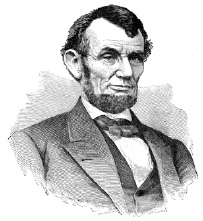
Abraham Lincoln (1809–1865)
As president of the United States, Abraham Lincoln also served as commander in chief of the Union army. One of his most important duties as the highest-ranking military officer in the land was to appoint able generals to command his troops. Lincoln was assassinated at Ford’s Theatre in Washington, D.C., by John Wilkes Booth on April 14, 1865—just five days after the Confederacy had surrendered to end the Civil War.
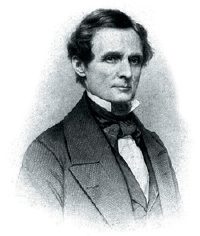
Jefferson Davis (1808–1889)
Jefferson Davis was the president of the Confederate States of America and the commander in chief of the Confederate army. Davis was well qualified for both jobs. He had served as a colonel in the U.S. Army during the U.S.–Mexican War, had been secretary of war in President Franklin Pierce’s cabinet, and had served as a member of the U.S. Senate. After the Civil War, Davis served two years in prison for treason against the United States.
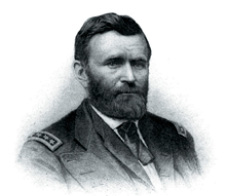
Ulysses S. Grant (1822–1885)
Commander of the Union army in the West, Ulysses S. Grant won important victories at Shiloh, Tennessee, and Vicksburg, Mississippi. He was given command of all Union forces in 1864 and within a year forced General Robert E. Lee to surrender at Appomattox Court House, Virginia. Grant later became the 18th president of the United States
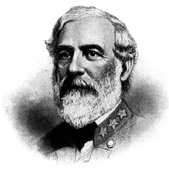
Robert E. Lee (1807–1870)
The South’s greatest general was also a U.S. military man before the Civil War. Robert E. Lee graduated second in his class at West Point military academy and rose to the rank of colonel. At the outbreak of the Civil War, Lincoln offered to make Lee the commander of the entire Union army. Instead, Lee decided to fight for the Confederacy out of loyalty to his home state of Virginia.
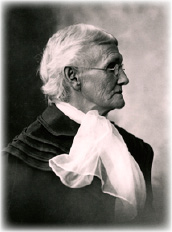
Mary Ann “Mother” Bickerdyke (1817–1901)
During the Civil War, Mother Bickerdyke worked tirelessly to improve hospital conditions in Cairo, Illinois, and elsewhere. In 1861, Cairo was a busy city on the Ohio River where Union soldiers were stationed on their way to and from the front lines of the war. As her reputation for hard work and prompt action spread, Bickerdyke was asked to supervise the construction of about 300 field hospitals. After the Civil War, Bickerdyke continued to work in behalf of veterans.
Today, a statue of Bickerdyke kneeling before a wounded soldier stands in the city square of her hometown, Galesburg, Illinois.
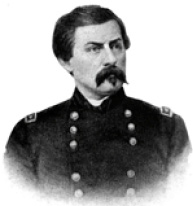
George B. McClellan (1826–1885)
Appointed Union commanding general in December 1861, George McClellan was given the job of capturing the Confederate capital of Richmond, Virginia. He believed that balloons could provide valuable military intelligence during the war, and he made Thaddeus Lowe the first commander of the Balloon Corps. In 1863, McClellan was relieved of command for indecisive leadership during the battle of Antietam. McClellan ran for president in 1864 but lost the election to Abraham Lincoln. He later served as governor of New Jersey from 1878 to 1881.
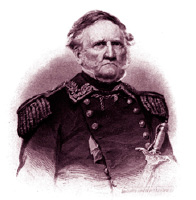
Winfield Scott (1786–1866)
Winfield Scott was commanding general of the Union army at the start of the Civil War. He was 75 years old at the time, and a veteran of both the War of 1812 and the U.S.–Mexican War. Scott died at West Point, New York, on May 29, 1866.
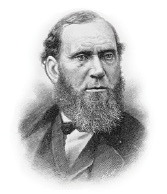
Allan Pinkerton (1819–1884)
As a young man, Allan Pinkerton left Scotland and settled in Chicago, where he set up a barrelmaking shop. His career took a turn when he uncovered a counterfeiting operation and helped police capture the crooks. That was the end of making barrels for Allan Pinkerton.
Pinkerton became a deputy sheriff, Chicago’s first detective, and then a special U.S. mail agent. In 1852 he established his own company, the Pinkerton National Detective Agency, one of the first private detective agencies in the world. Pinkerton’s agency pioneered investigative techniques such as using disguises and informers, “shadowing” (secretly following) suspects, and maintaining a “rogues’ gallery” (pictures of people wanted by the agency).
During the Civil War, President Abraham Lincoln put Pinkerton in charge of organizing the country’s first Secret Service agency. Pinkerton and his detectives collected military intelligence throughout the South and rooted out Confederate spies.
After the war, Pinkerton returned to his own detective agency. His agents worked as private guards, strikebreakers, and spies. Today, Pinkerton Consulting and Investigations is one of the nation’s largest security and investigations firms.

William Tecumseh Sherman (1820–1891)
William Sherman won fame during his “March to the Sea.” In this campaign he moved his army across Georgia, destroying any military supplies that lay in his path. The Union navy had already cut the Confederacy in half by gaining control of the Mississippi River. Sherman’s march divided the South into three parts. After the Civil War, Sherman was promoted to general in chief of the U.S. army.